Noticias del IIE
Las últimas noticias de Instituto Internacional e información sobre nuestras actividades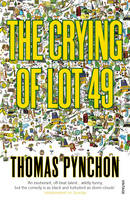
- Posted: 14 septiembre, 2011
- By: Instituto Internacional
- Comments: No Comments
La colección en uso
“The crying of lot 49” by Thomas Pynchon “The highly original satire about Oedipa Maas, a woman who finds herself enmeshed in a worldwide conspiracy, meets some extremely interesting characters, and attains a not inconsiderable amount of self knowledge.” Extraído de Amazon. Ver además: http://www.nytimes.com/books/97/05/18/reviews/pynchon-lot49.html http://www.sparknotes.com/lit/lot49/ http://en.wikipedia.org/wiki/The_Crying_of_Lot_49 Los títulos seleccionados son una muestra de los
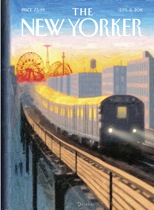
- Posted: 14 septiembre, 2011
- By: Instituto Internacional
- Comments: No Comments
Nuevo número recibido de: THE NEW YORKER (September 5th, 2011)
Sumario de este número en página The New Yorker Magazine. Ver números anteriores disponibles en la biblioteca
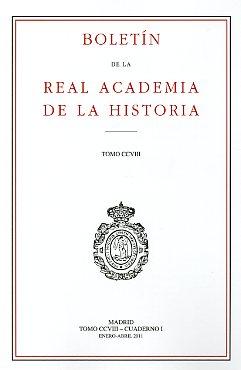
- Posted: 13 septiembre, 2011
- By: Instituto Internacional
- Comments: No Comments
Nuevo número recibido de: BOLETÍN DE LA REAL ACADEMIA DE LA HISTORIA (tomo CCVIII, cuaderno 1. Enero-Abril 2011)
Sumario de éste número: *Vasallos del Océano: La cartografía atlántica española en el siglo XVI. En torno al coloquio sobre las Cartas de Indias con dos graduaciones. Antonio Sánchez Martínez *La progresiva sustitución del latín universitario por las lenguas vernáculas. Luis Rodríguez Ennes *Juegos escénicos: Aparatos diversos de la Hª del espectáculo en la época
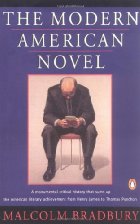
- Posted: 13 septiembre, 2011
- By: Instituto Internacional
- Comments: No Comments
La colección en uso
“The modern American novel” by Malcolm Bradbury “An updated study of American literary tradition traces the development of the American novel from James and Dreiser, through the works of Faulkner and Hemingway, to the emergence of Jewish- and African-American authors, and the work of avant-garde writers including Pynchon and Vonnegut.” Extraído de GoogleBooks. Ver además:

- Posted: 13 septiembre, 2011
- By: Instituto Internacional
- Comments: No Comments
Las novedades destacadas de la semana
“The samurai banner of Furin Kazan” by Yasushi Inoue “Originally published in Japanese in 1959, this classic novel by Yasushi Inoue takes place during the Japanese Warring Era (1467-1573), a time when Japan was ruled by three young powerful warlords: Takeda Shingen, Iwagawa Yoshimoto, and Hojo Ujiyasu. The story focuses on Takeda Shingen and his

- Posted: 12 septiembre, 2011
- By: Instituto Internacional
- Comments: No Comments
Último número recibido de: HISPANIC REVIEW (vol. 79.2. Spring 2011)
Sumario de éste número: ARTICLES *Género, imprenta y espacio social: una “poética de la pólvora” para la épica quinientista. Miguel Martínez *Market, audience, and the fortunes and adversities of Lazarillo de Tormes castigado (1537). Felipe E. Ruan *”La enfermedad extraña”: inapetencia, class and eating disorders in La esfinge maragata. Robin Ragan *Encrucijadas de la economía

- Posted: 12 septiembre, 2011
- By: Instituto Internacional
- Comments: No Comments
Las novedades destacadas de la semana
“Notas de un viaje a Oriente” por Julián Marías “Túnez, Egipto, Israel, Turquía, Grecia e Italia son algunos de los destinos que Julián Marías glosa en los diarios y cartas de «Notas de un viaje a Oriente», que publica Páginas de Espuma.” Extraído de ABC Ver además: http://e-revistas.uc3m.es/index.php/CIAN/article/view/1259/538 http://www.elpais.com/articulo/portada/Notas/viaje/Oriente/elpepuculbab/20110611elpbabpor_45/Tes http://www.la2revelacion.com/?p=2275 http://www.youtube.com/watch?v=dvohh4EWoQs http://es.wikipedia.org/wiki/Juli%C3%A1n_Mar%C3%ADas Los títulos recomendados
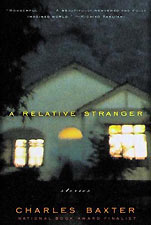
- Posted: 12 septiembre, 2011
- By: Instituto Internacional
- Comments: No Comments
La colección en uso
“A relative stranger: stories” by Charles Baxter “Set in the Michigan landscape that Charles Baxter has made his own, these thirteen exquisite stories illuminate the often curious connections of relatives and strangers.” Extraído de Powells. Ver además: http://www.charlesbaxter.com/published_works/published_relative.htm http://annotationnation.wordpress.com/2009/05/12/a-relative-stranger-stories/ http://www.elpais.com/todo-sobre/persona/Charles/Baxter/2049/ http://en.wikipedia.org/wiki/Charles_Baxter_(author) Los títulos seleccionados son una muestra de los materiales de la Biblioteca del Instituto

- Posted: 11 septiembre, 2011
- By: Instituto Internacional
- Comments: No Comments
Último número recibido de: HISPANIC REVIEW (vol. 79.1. Winter 2011)
Sumario de éste número: ARTICLES *Luciana´Story: Text, travel, and interpretation in the Libro de Apolonio. Matthew V. Desing *Imperial celebrations, local triumphs: The rhetoric of Festival Accounts in the Portuguese Empire. Lisa Voigt *Crossing over: Gender and empire in Fanny Calderón de la Barca´s. The attaché in Madrid. Beth Bauer *Vicente Huidobro y el cine:

- Posted: 10 septiembre, 2011
- By: Instituto Internacional
- Comments: No Comments
Nuevo número recibido de: CUADERNOS HISPANOAMERICANOS (nº 734. Agosto 2011)
Sumario de este nuevo número: *El pasado cabe en dos vidas. Benjamín Prado EL OFICIO DE ESCRIBIR *Meditación sobre el arquero. Andrés Sánchez Robayna MESA REVUELTA *Coordenadas habaneras de José Lezama Lima. Abilio Estévez *Leopoldo María Panero sobre la tumba del poema. Antonio Martín Albalate *Un viaje a la santa muerte. Alberto Granados *Islas.



